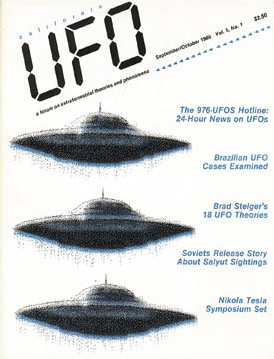Showtime is facing a trademark infringement lawsuit based on its show UFO—a docuseries that explores the possibility of alien life and government coverups of alien encounters. UFO Magazine—a periodical that reports on UFO sightings—filed a complaint against Showtime in the District of Wyoming, alleging that the title of the show infringes the magazine’s trademark rights.
UFO Magazine owns three federal trademark registrations for “UFO” in standard characters covering magazines and other entertainment services, including, “Entertainment in the nature of a television series and motion picture film series.” Generally speaking, the owners of a registered trademark have the exclusive right to use that mark in commerce with the goods and services identified in the registration. But UFO Magazine is likely to encounter several difficulties in its pending lawsuit.
First, the magazine might not have any valid trademark rights at all. To be worthy of trademark rights, a mark owner needs to be using that mark in commerce. In its complaint, UFO Magazine merely alleges it “has been in discussion for development of a UFO motion picture and/or television series for many years.” Indeed, the company’s trademark filings include an advertisement that declares “UFO Magazine, Inc. is looking to make a UFO movie” and includes an offer to sell the company’s “UFO” trademarks. Showtime can argue that this is not a valid use of the mark in connection with the entertainment services identified in UFO Magazine’s registrations.
Showtime is also likely to argue that the term “UFO” is generic for alien-themed entertainment. A generic term is one that consumers understand to describe a type of product or service. Generic terms are ineligible for trademark protection because all competitors in the marketplace need them to accurately describe their goods and services. Here, it seems unlikely that consumers associate the term “UFO” with a single source of entertainment services and giving UFO Magazine exclusive rights to the term for alien-themed entertainment would certainly have anticompetitive effects.
The First Amendment might also provide Showtime with a strong defense. There is a long line of precedent that recognizes titles of expressive works—like movies and TV shows, are entitled to protection under the First Amendment and require a stricter test for trademark infringement. Under this standard, the use of another’s trademark in the title of an expressive work is protected when use of the mark is artistically relevant to the underlying work and there is nothing else that explicitly misleads consumers as to the source or content of the work. In this case, “UFO” is relevant to a show about aliens, and it is doubtful that anything in the show would explicitly mislead consumers to believe it is associated with UFO Magazine.
Despite the weakness of its claims, UFO Magazine is seeking to recover Showtime’s profits from the show, as well as punitive damages and attorneys’ fees. However, it seems unlikely that UFO Magazine will prevail on its trademark infringement claims.
Kloss Stenger & Gormley LLP is a firm with experienced attorneys ready and able to help you with any trademark questions or concerns. Contact us today to get started.
Disclaimer: This blog is made available by Kloss Stenger & Gormley LLP for educational purposes only. It is not intended to provide legal advice nor form any attorney client relationship between the reader and Kloss Stenger & Gormley LLP. You should always seek professional advice from a licensed attorney for any legal questions you may have.
